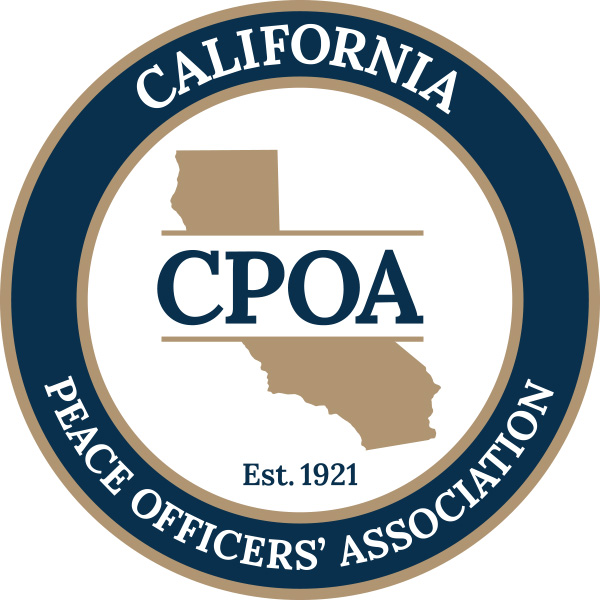Provided by James R. Touchstone, Esq. Richard A. Lucero, Esq.
The persistence of the COVID-19 pandemic, the transmissibility associated with the Delta variant, and differing beliefs about personal autonomy and the role of government in mandating methods of illness prevention have again brought the issue of mandatory vaccines to the center of public policy. The purpose of this Alert is to provide law enforcement executives with an updated briefing to assist you in establishing direction for your organizations and in communicating with members of your departments and the communities you serve.
As a reminder, in January, we issued Client Alert Vol. 36 No. 1- Executive Decisions and the COVID-19 Vaccines. The Alert discussed labor and employment considerations preparatory to any potential decision regarding mandatory vaccines. The full Alert is available at https://www.jones-mayer.com/news/2021/01/07/vol-36-no-1-executive-decisions-and-the-covid-19-vaccines/.
One of the variables raised in the Alert was the implications of Emergency Use Authorization of the vaccines and the requirements of the Federal Food, Drug, and Cosmetic Act pertaining to conditions of authorization. The specific issue was the application of a component of Section 564, found in the Code at 21 U.S.C. section 360bbb-3 appearing below:
(ii) Appropriate conditions designed to ensure that individuals to whom the product is administered are informed—
- that the Secretary has authorized the emergency use of the product;
- of the significant known and potential benefits and risks of such use, and of the extent to which such benefits and risks are unknown; and
- of the option to accept or refuse administration of the product, of the consequences, if any, of refusing administration of the product, and of the alternatives to the product that are available and of their benefits and risks. (Emphasis added.)
21 U.S.C.S. § 360bbb-3 (LexisNexis, Lexis Advance through Public Law 117-27, approved July 22, 2021, excepting Part V of Subtitle A of Title 10, as added by Public Law 116-283 (effective 1/1/2022))
At the time, we indicated the interpretation of these requirements was not fully understood at that point. We offered the assessment, however, that we did not believe this provision would be a barrier to effectively guiding our organizations. For the purpose of either affirming or amending our guidance, on January 7, 2021, on behalf of CSSA, CPCA, and CPOA, we submitted to the Equal Opportunity Employment Commission a request for an opinion letter, in part, as to whether the obligation to inform potential vaccine recipients of their option to accept or refuse the vaccine created any independent employment right separate from existing employment protections.
The EEOC updated and clarified materials on their website of May 28, 2021. The following passage appears on the site:
The EEOC has received many inquiries from employers and employees about the type of authorization granted by the U.S. Department of Health and Human Services (HHS) and Food and Drug Administration (FDA) for the administration of three COVID-19 vaccines. These three vaccines were granted Emergency Use Authorizations (EUA) by the FDA. It is beyond the EEOC’s jurisdiction to discuss the legal implications of EUA or the FDA approach. Individuals seeking more information about the legal implications of EUA or the FDA approach to vaccines can visit the FDA’s EUA page. The EEOC’s jurisdiction is limited to the federal EEO laws as noted above. (Emphasis added.)
However, the site does contain additional specific vaccine related employment guidance, an excerpt appearing below:
K.1. Under the ADA, Title VII, and other federal employment nondiscrimination laws, may an employer require all employees physically entering the workplace to be vaccinated for COVID-19? (5/28/21)
The federal EEO laws do not prevent an employer from requiring all employees physically entering the workplace to be vaccinated for COVID-19, subject to the reasonable accommodation provisions of Title VII and the ADA and other EEO considerations discussed below. These principles apply if an employee gets the vaccine in the community or from the employer.[1]
Recent Developments
Department of Justice Opinion: Whether Section 564 of the Food, Drug, and Cosmetic Act Prohibits Entities from Requiring the Use of a Vaccine Subject to an Emergency Use Authorization
In an opinion dated July 6, 2021, the Office of Legal Counsel directly addressed the Emergency Use Authorization issue. The opinion concluded the Food, Drug, and Cosmetic Act concerns providing “information to potential vaccine recipients and does not prohibit public or private entities from imposing vaccination requirements for a vaccine that is subject to an emergency use authorization.”[2] The opinion discussed the progression of the Project BioShield legislation. The analysis also identified how the EUA granted to the three vaccines included a condition requiring distribution of a Fact Sheet with the option to accept or refuse the vaccine and that it would not change the person’s standard of care.[3] The discussion also noted how the FDA has “issued dozens of EUAs in response to various public-health emergencies.”[4] The opinion expressed, “Neither the statutory conditions of authorization nor the Fact Sheet itself purports to restrict public or private entities from insisting upon vaccination in any context.”[5]
The opinion also relied upon Section 564(l) stating in part, “This section only has legal effect on a person who carries out an activity for which an authorization under this section is issued.”[6] The opinion assessed, “This provision expressly forecloses any limitation on the activities of the vast majority of entities who would insist upon vaccination requirements, because most do not carry out any activity for which an EUA is issued.”[7] The opinion additionally referenced Bridges v. Houston Methodist Hosp., described as being the only case to have at that point addressed this issue. “It neither expands nor restricts the responsibilities of private employers; in fact, it does not apply at all to private employers like the hospital in this case. It does not confer a private opportunity to sue the government, employer, or worker.”[8]
Injunction Denied against Indiana University Vaccine Requirement
Approximately at the time the DOJ opinion was being disseminated, the Indiana Northern District Court issued an opinion denying a preliminary injunction in a constitutional challenge brought by eight students against the Indiana University vaccine requirement. The case is from a District Court and in another Circuit. However, the discussion informs our understanding of this issue in that, “No case to date has decided the constitutionality of whether a public university, such as Indiana University, may mandate that its students receive a COVID-19 vaccine.”[9]
The Court identified, “There have been six significant public health emergencies for which the FDA has authorized EUAs: anthrax, swine flu (H1N1), MERS (Middle East respiratory syndrome coronavirus), Ebola, Zika, and now COVID-19.”[10] In the
opinion, the Court also articulated boundaries to the authority of government. “The Constitution doesn’t permit the government to declare a never-ending public emergency and expand its powers arbitrarily … Instead, as our country and communities progress through a pandemic, the government must continually update its practices in light of the most recent medical and scientific developments.”[11] The Court also noted, as a component of the EUA analysis, “Because of the widespread use of a COVID-19 vaccine, the FDA informed manufacturers that it expected the same level of endpoint efficacy data as required for full approval, enough safety data to justify by clear and compelling evidence the vaccine’s safety,” thus positioning applicants toward eventual full approval.[12]
The District Court also evaluated the EUA informed consent issue and the requirement that recipients must be told of the option to refuse the vaccine. The Court similarly explained, “The university isn’t directly administering the vaccine to its students; instead, it is requiring students to obtain the vaccine from a medical provider and to attest that they have been vaccinated.”[13] With a cognizance of the liberty interests in refusing unwanted medical treatment, the Court concluded, “the Fourteenth Amendment permits Indiana University to pursue a reasonable and due process of vaccination in the legitimate interest of public health for its students, faculty, and staff.”[14]
How This Affects Your Agency
The information provided here is intended to supplement what we have previously issued. Employer considerations related to vaccines regarding accommodations involving health conditions or faith-based requests remain in place, as does the role of collective bargaining.
Any decision affecting the personal autonomy of employees is organizationally difficult. Protection of community members and employees, maintaining a safe workplace, respecting individual rights, regional levels of infection and vaccine acceptance, and overall cumulative frustration complicate this situation. This Alert is an effort to try and offer foundational information for your use in responding to dialogue, inquiries, or issues that may arise in your jurisdiction.
As always, if you want to discuss any of this in greater detail, do not hesitate to contact James R. Touchstone or Richard Lucero, at jrt@jones-mayer.com or ral@jones-mayer.com, respectively, or by phone at (714)-446-1400.
Information on www.jones-mayer.com is for general use and is not legal advice. The mailing of this Client Alert Memorandum is not intended to create, and receipt of it does not constitute, an attorney-client-relationship.
[1] https://www.eeoc.gov/wysk/what-you-should-know-about-covid-19-and-ada-rehabilitation-act-and-other-eeo-laws#K
[2] Slip Opinion, https://www.justice.gov/olc/file/1415446/download
[3] https://www.justice.gov/olc/file/1415446/download at pg. 1,5 and 6.
[4] Id. at 5.
[5] Id. at 8.
[6] 21 U.S.C.S. § 360bbb-3 (LexisNexis, Lexis Advance through Public Law 117-27, approved July 22, 2021, excepting Part V of Subtitle A of Title 10, as added by Public Law 116-283 (effective 1/1/2022))
[7] https://www.justice.gov/olc/file/1415446/download at 8.
[8] Bridges v. Hous. Methodist Hosp., No. H-21-1774, 2021 U.S. Dist. LEXIS 110382, at *5 (S.D. Tex. June 12, 2021)
[9] Klaassen v. Trs. of Ind. Univ., No. 1:21-CV-238 DRL, 2021 U.S. Dist. LEXIS 133300, at *38 (N.D. Ind. July 18, 2021)
[10] 2021 U.S. Dist. LEXIS 133300, at *21 (N.D. Ind. July 18, 2021)
[11] Id. at 57.
[12] Id. at 21.
[13] Id. at 64.
[14] Id. at 125.


